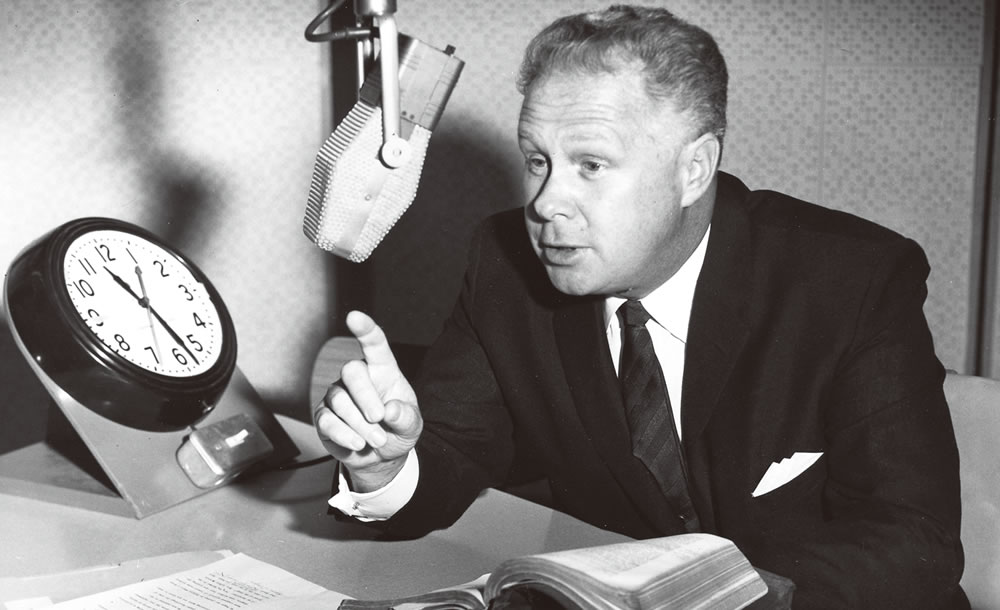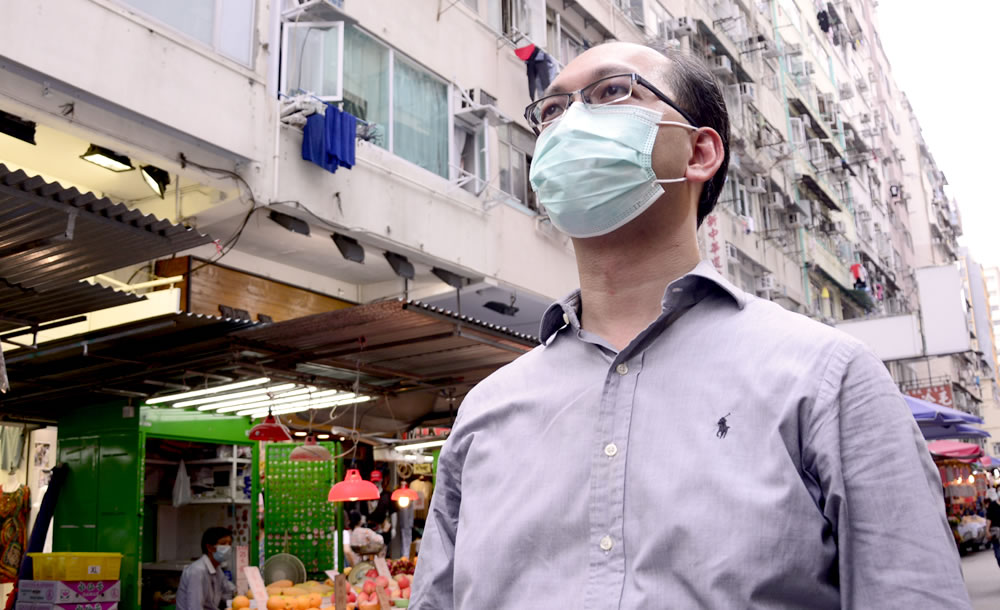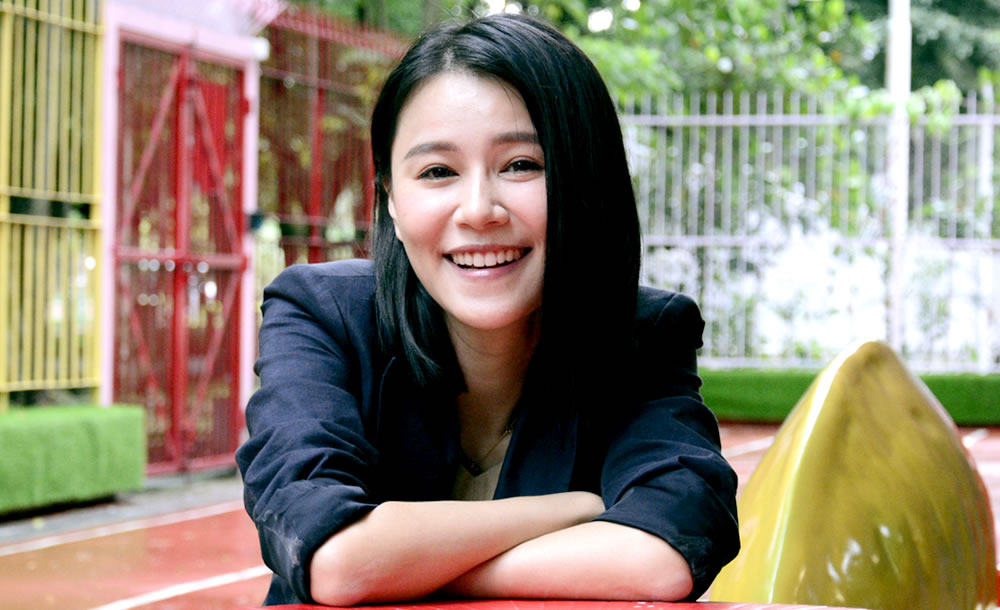“We want to be in the world what we think Jesus Christ would be if He were in the middle of all of these problems and needs.”
── Dr. Bob Pierce (Founder of World Vision)
Dr. Bob Pierce (1914–1978) was a war correspondent, a faithful servant of God, a father and the founder of World Vision. In 1947, Bob, then 33 years old, left the United States for China on his first mission, his first time preaching the gospel in another culture. Appalled by the plight and poverty of the people that he met, Bob deeply felt that when someone needed food, clothing, shelter or medicine to survive, hearing the good news alone was not enough, there had to be something practical to go with it. This motivated him to found World Vision in 1950.
Bob covered the suffering of the Korean War as a journalist with his writing and camera, bringing firsthand information back to the United States and calling on people to care for and help those who became orphans and widows. For Bob, the poor were not merely a set of figures, but lives with unique faces, names, feelings, hopes and aspirations.
As the Vietnam War escalated, World Vision became more involved by providing direct assistance, such as starting refugee schools, providing shelters for the displaced, assisting amputees with wheelchairs, and setting up a bakery to make nutritional biscuits for hungry children. Currently, World Vision has expanded to serve the poor and vulnerable in nearly 100 countries around the world, carrying on with the same passion and beliefs that Bob had.

“If only one wishes, even an ordinary person can accomplish extraordinary things for one’s neighbours.”
── Dr. Dannis Au (General Secretary of Industrial Evangelistic Fellowship)
For
Dr. Dannis Au, the poverty that his grassroots friends face is more than a lack of resources. “There is a kind of poverty that is heartbreaking, that is, a social poverty. These people simply don’t have anyone to help them deal with the tensions and drastic changes in life.”
During the pandemic, Dr. Au and his staff organised a campaign in the community to care for and stand with grassroots families. With the needs immense yet limited resources, Dr. Au found the pressure overwhelming. “We are grateful for World Vision. Not only did they donate stuff, they were also going on visits with us, observing the families’ needs and responding promptly.” When he saw that World Vision was giving out brand new toys collected from donors to children who had long been confined at their small homes, Dr. Au was deeply touched. “These children are poor, but in the eyes of World Vision’s staff, their lives are equally precious.”
On one occasion, a poor person rejected their masks, asking them to pass on the gift to another person in greater need. “The lives of our friends have been impacted by our service. Now they can also love and be a blessing to others.” Amidst different tensions, it has been the joy of seeing lives transformed that inspires him to continue loving his neighbours as himself. “The only thing that we can do for our friends is to offer a glass of water, so that they feel being remembered and cared for.” For Dr. Au, it is something that all ordinary people can do, if only they wish.
“I would say, what we do during the pandemic, is not so much helping others, but helping ourselves. Because we are all sad and want to do something so that we can draw strength from one another.”
── Priscilla Wong (Sponsor)
Priscilla Wong describes herself as happy and ordinary. As a child, she attended a primary school in a public housing estate. She still remembers that she was once chosen as one of the representatives of her school to join a dance course, but had to give up the opportunity because her family could not afford it. “I felt inferior at that moment. But when I look back on it now, it was just an experience. Perhaps I was poorer than others, but I was still normal and ordinary.”
The recent pandemic has given Priscilla an opportunity to reflect on poverty. Once, she hurried to the supermarket in her pyjamas to buy rice, only to find herself standing in front of empty shelves. “What we used to take for granted can be gone all of a sudden, yet for many around the world, this is something that they have accepted since birth. For us, poverty is no longer an imagination or something that we perceive as a third person…” During the pandemic, Priscilla contacted World Vision to help her distribute the hand sanitisers that she bought, even making visits and present the gifts herself. “What we can share is not a lot, but I think sharing demonstrate to them that someone actually cares when they feel helpless.” Priscilla understands that true sharing is to be willing to share with those in greater need even when we ourselves do not have enough.
Claiming herself to be ordinary, Priscilla also stresses how Child Sponsorship has made her extraordinary. Having visited her sponsored child, Priscilla believes that this feeling of extraordinariness comes from the fact that her sponsored child has now been given a choice through her, and she believes that this is something that every ordinary person can do.


 Gift Catalogue
Gift Catalogue VisionFund
VisionFund Share.LOVE Wedding Favour Donation (Hong Kong)
Share.LOVE Wedding Favour Donation (Hong Kong) Share.JOY Cash Gift Donation (Hong Kong)
Share.JOY Cash Gift Donation (Hong Kong) Share.LOVE Wedding Favour Donation (Macau)
Share.LOVE Wedding Favour Donation (Macau) Share.JOY Cash Gift Donation (Macau)
Share.JOY Cash Gift Donation (Macau) Your Red Packet
Your Red Packet  Legacy Giving
Legacy Giving Project Support
Project Support Local Programme
Local Programme Help Children in Need
Help Children in Need Donation to Where Most Needed
Donation to Where Most Needed


















